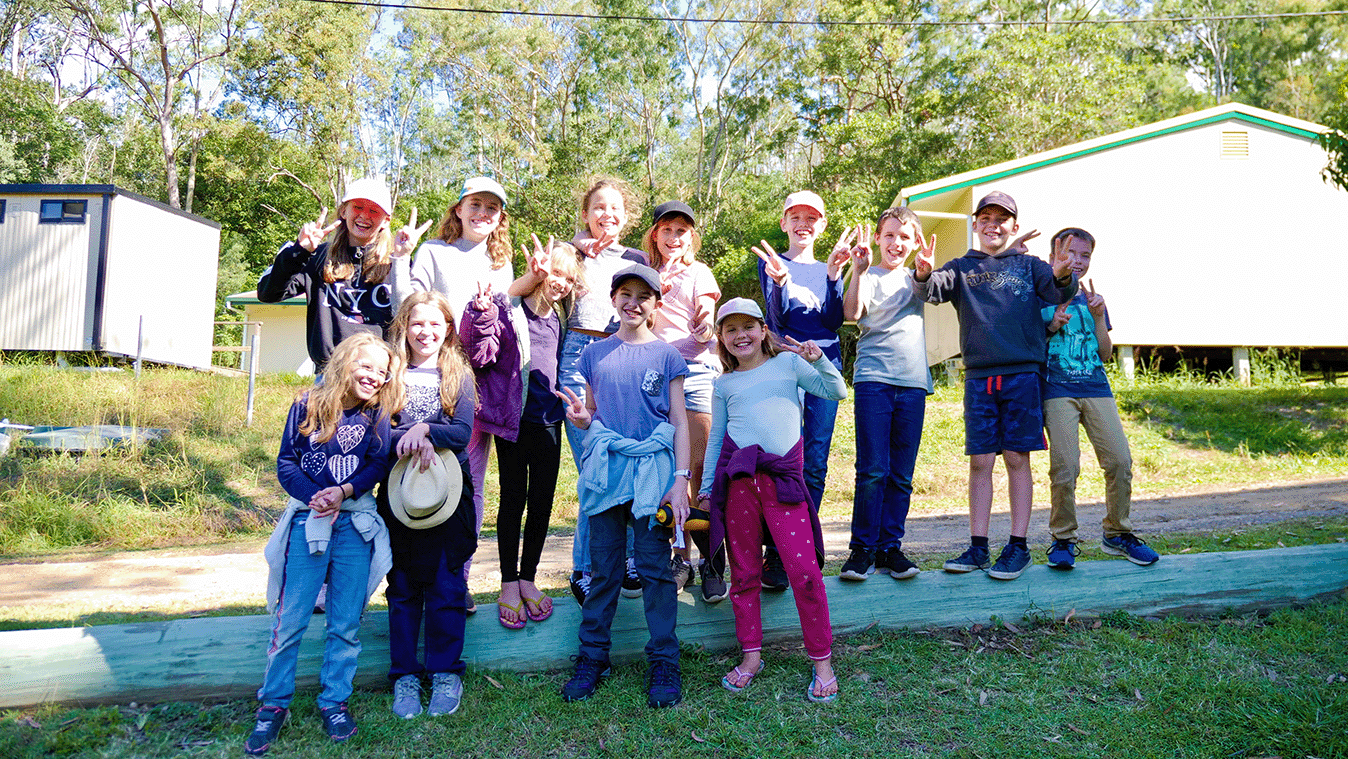
Faith’s Secondary curriculum covers Years 7 to 9 and involves a blend of paper-based and digital-based learning through a Christian Worldview.
Years 7 to 9 Subjects
Faith follows the curriculum guidelines set out by ACARA and the Queensland Department of Education in the following Key Learning Areas:
- English
- Mathematics
- Science
- Humanities & Social Sciences
- The Arts
- Technologies
- Health & Physical Education
- Languages Years 7-8
Our Values
While we adhere to the compulsory government guidelines in the Australian Curriculum, our unit workbooks are unique in that they are presented through a Christian Worldview.
Lesson Delivery
For Secondary students, lesson delivery at Faith is through digital workbooks accompanied with live video lessons. Paper copies of the workbook are available on request via our Resource Library.
Year 7
Year 7 students engage in the full range of subjects included in the Australian Curriculum suite. These subjects build on those done through the Primary years with an increasing focus on independent learning. Students will begin to learn more about their strengths and interests as they move towards specialising in the chosen areas.
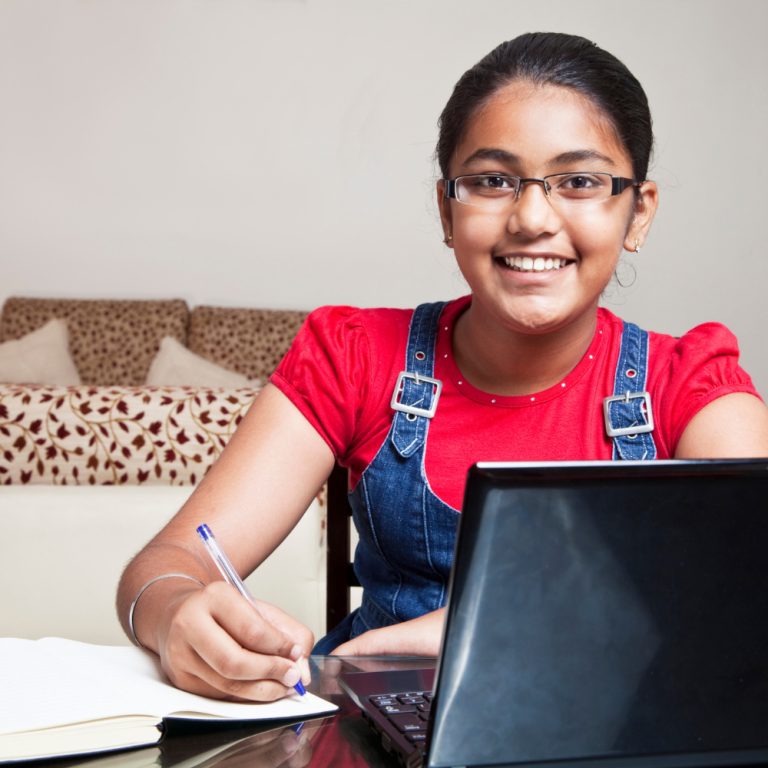
English
Students will study the three interrelated strands of language, literature and literacy. They engage with a variety of texts for enjoyment. They listen to, read, view, interpret, evaluate and perform a range of spoken, written and multimodal texts in which the primary purpose is aesthetic, as well as texts designed to inform and persuade. These include various types of media texts including newspapers, magazines and digital texts, early adolescent novels, non-fiction, poetry and dramatic performances.
Maths
Students will study numbers and algebra, measurement and geometry, and statistics and probability. This includes fractions, decimals, percentages, ratios, graphing data, area and volume in abstract and “real-life” situations.
Science
Developing understanding, inquiry skills, and awareness of the significance of science in our daily lives are all key goals in this subject. Topics include interrelationships between organisms, forces and motion, chemical mixtures and the Earth’s cycles.
Humanities & Social Sciences
Students study History from the time of the earliest human communities to the end of the ancient period, examine increasing global integration and international mobility, understand key features of Australia’s system of government and explore what it means to be a consumer, a worker and a producer in an economic market.
Health & Physical Education
Students focus on the two strands of Movement and Physical Activity, and Personal, Social and Community Health. They will practise and apply movement concepts and strategies through learning about fitness principles, Athletics, Orienteering and understanding the importance of feedback, decision making and problem solving in game play. Students will also investigate respectful relationships, changes experienced with adolescence, how to take positive action to enhance health and learn about help-seeking strategies and services.
Technologies
Students will rotate through a semester of both Digital Technologies and Design & Technologies over the year. They will be exposed to various contexts where designing and developing a solution to a problem becomes integral to the world we live in.
The Arts
Each term, Year 7 students have a different Arts subject. Faith offers Music, Visual Arts, and Drama.
Languages
Students from Years 3-8 are offered Japanese in order to develop language skills to enable them to exchange information relating to themselves and the people around them. Students begin to use cues of content and images to assist language comprehension. Through engaging in learning about the language, culture and customs of different people groups students broaden their horizons and extend their perspectives with a deeper and richer understanding of all those who contribute to the world in which they live.
Co-Curricular Activities
Outside of our curriculum, Year 7 students can participate in Regional Workshops, after-school clubs, sports sessions and more.
Year 8
During this final year of Junior Secondary students will consolidate the knowledge and skill development of all the core subjects of the Australian Curriculum. Students will begin to focus on looking into their potential future pathways and to plan the subjects which will best build that pathway.

English
Students will study the three interrelated strands of language, literature and literacy. Together, the strands focus on developing students’ knowledge, understanding and skills in listening, reading, viewing, speaking, writing and creating. Learning in English builds on concepts, skills and processes developed in earlier years, and teachers will revisit and strengthen these as needed.
Maths
Students will study numbers and algebra, measurement and geometry, and statistics and probability. This includes introductory algebra, analysing and graphing data, area and volume in abstract and “real-life” situations. Students will learn to formulate models of practical situations involving linear relationships, profit and loss, common shapes and using two-way tables and Venn diagrams to calculate probabilities.
Science
Developing understanding, inquiry skills, and awareness of the significance of science in our daily lives are all key goals in this subject. Topics include cells and systems, energy transformations, chemical properties and rocks and minerals.
Humanities & Social Sciences
This year provides a study of history from the end of the ancient period to the beginning of the modern period while investigating geomorphology through a study of landscapes and their landforms and the changing human geography of countries. Students understand the responsibilities and freedoms of citizens and how Australians can actively participate in their democracy while exploring the ways markets in Australia work.
Health & Physical Education
Students focus on the two strands of Movement and Physical Activity, and Personal, Social and Community Health. They will practise and apply movement concepts and strategies through learning about the importance of being ‘fit for life’, Athletics, Teamwork and developing their knowledge and skills in a sport of their choice. Students will also investigate the importance of maintaining a healthy lifestyle, explore positive and negative risk taking, examine the importance of valuing diversity and develop injury prevention strategies.
Technologies
Students will rotate through a semester of both Digital Technologies and Design & Technologies over the year. They will be exposed to various contexts where designing and developing a solution to a problem becomes integral to the world we live in.
The Arts
Each term, Year 8 students have a different Arts subject. Faith offers Music, Visual Arts, and Drama.
Languages
Students from Years 3-8 are offered Japanese in order to develop language skills to enable them to exchange information relating to themselves and the people around them. Students begin to use cues of content and images to assist language comprehension. Through engaging in learning about the language, culture and customs of different people groups students broaden their horizons and extend their perspectives with a deeper and richer understanding of all those who contribute to the world in which they live.
Co-Curricular Activities
Outside of our curriculum, Year 8 students can participate in Regional Workshops, after-school clubs, sports sessions and more.
Year 9
Year 9 is the first year in which students will select Elective Subjects which allows them to pursue their areas of interest. They will continue to engage in the core subjects of English, Mathematics, Science and History in order to set firm foundations for whichever pathway they choose moving forward.
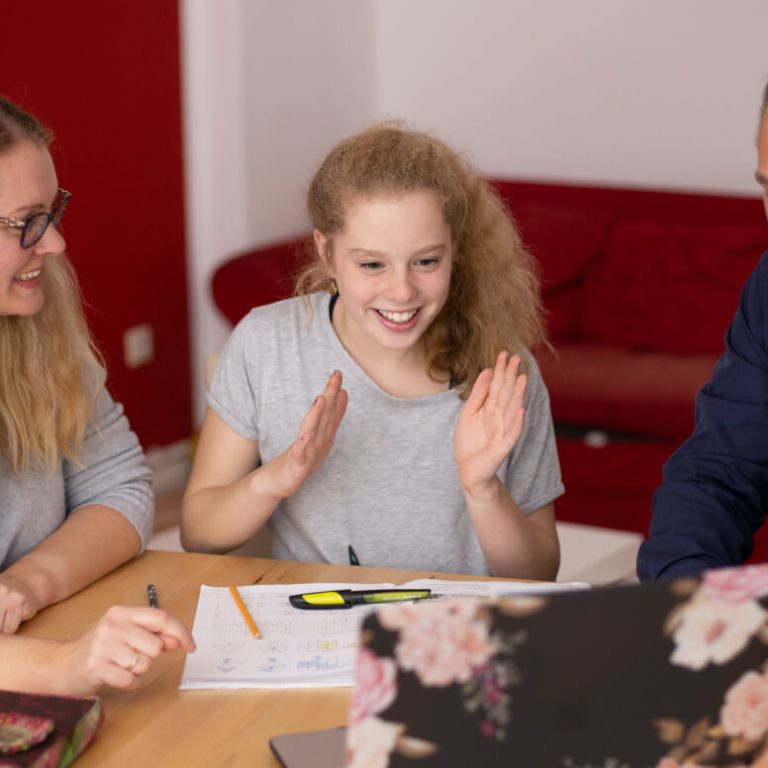
English
Students interpret, create, evaluate, discuss and perform a wide range of literary texts in which the primary purpose is aesthetic, as well as texts designed to inform and persuade. These include various types of media texts, including newspapers, film and digital texts, fiction, non-fiction, poetry, and multimodal texts, with themes and issues involving levels of abstraction, higher order reasoning and intertextual references. Students develop a critical understanding of contemporary media and the differences between media texts.
Maths
Students will study numbers and algebra, measurement and geometry, and statistics and probability. This includes complex algebra, analysing and graphing histograms, complex probability, surface area and volume in abstract and “real-life” situations. Students will learn to formulate models of practical situations involving linear relationships, complex shapes and using two-way tables and Tree Diagrams to calculate probabilities.
Science
Developing understanding, inquiry skills, and awareness of the significance of science in our daily lives are all key goals in this subject. Topics include ecosystems, properties of light and sound waves, chemical reactions and geological activity.
Humanities & Social Sciences
Year 9 students choose between Economics & Business or Geography for their HaSS elective. HaSS provides a study of the history of the making of the modern world along with investigating the role of the biotic environment and how people, through their choices and actions, are connected to places throughout the world. Furthermore, it builds students’ understanding of Australia’s political system and how it enables change while learning about economics and business concepts within the global economy.
Health & Physical Education
Students focus on the two strands of Movement and Physical Activity, and Personal, Social and Community Health. They will practise and apply movement concepts and strategies through continuing to learn about fitness principles and components, Athletics, Dance and exploring a variety of recreational activities Australians participate in. Students will also learn about mental health concepts, nutrition required for good health, safety and injury management and how they can develop a sense of connection in their community through promoting health and wellbeing.
Co-Curricular Activities
Outside of our curriculum, Year 9 students can participate in Regional Workshops, after-school clubs, sports sessions and more.
Year 9 Electives
Visual Arts (Elective)
Students study four Visual Arts Units throughout 2024. In Unit 1, “Feathers of Freedom,” students explore mixed media to express their ideas, culminating in an album cover design. Unit 2, “Art of Reflection,” delves into the profound, where students use reflective materials and photography to convey their thoughts, exploring themes in both art and scripture. Unit 3, “Human Form and Movement,” focuses on capturing the human body’s essence, drawing inspiration from artists across cultures and times. Lastly, Unit 4, “Nature Inspired Sculpture,” encourages students to challenge their sculpting abilities, crafting pieces inspired by nature’s beauty and symbolism, with careful attention to design principles.
Throughout the year, students will hone their artistic skills, engage with diverse influences, and effectively communicate their creative intentions to the world.
Music (Elective)
Students who choose Music for their elective will explore the principles of structure and form in composition, utilising notation software and delving into musical elements. “Melodic Structures” will focus on major and minor scales, honing skills in music theory, analysis, and notation. The “Vocal Strengthening & Intonation” unit will provide a strong foundation for voice training, emphasising intonation and music literacy, while also exploring the connection between different musical styles and cultures. Finally, in “Popular Music and Social Commentary,” students will analyse the role of music in addressing social and political issues, engaging in critical analysis and even composing original works to convey meaningful messages.
Throughout the year, students will
deepen their musical understanding, creativity, and awareness of music’s profound impact on society.
Japanese (Elective)
In the Year 9 Japanese elective, students explore various aspects of language and culture. In “The World Around Us” unit, they will investigate how language and culture influence their aspirations, engaging in communicative experiences about teenage life and applying language skills when applying for a job. The “What is Advertising?” unit focuses on expressing preferences, permissions, and prohibitions while using adverbs and adjectives, along with examining the role of advertising. In “What are life stories?” students will communicate ideas about immigration, engaging with informative texts on migrant experiences and participating in intercultural experiences to compare language and culture. Lastly, in “What are our global connections?” students will discuss experiences with other countries and cultures and analyse perspectives through a range of texts.
Throughout the year, they will develop language proficiency, cultural understanding, and intercultural communication skills in Japanese.
Technologies (Elective)
In the Year 9 Design and Technologies elective, students study four units throughout the year. They begin with the “Sketching” unit, where they learn technical drawing skills, including isometric, oblique, orthogonal, and perspective drawings, to effectively communicate and generate ideas. Moving on to “Sketch Up!,” students delve into computer-aided design (CAD), creating solid (3D) models and technical engineering drawings using SketchUp software. In “Built Environment,” students apply their CAD knowledge specifically to architecture, gaining a deep understanding of architectural design and modelling. Lastly, in “Electronic Design,” students build on their understanding of electrical technology and circuitry, using virtual simulations to enhance their creativity in electronic design.
Throughout the year, students will develop skills in design thinking, innovation, and problem-solving, equipping them for future endeavours in the field of design and technology.
-
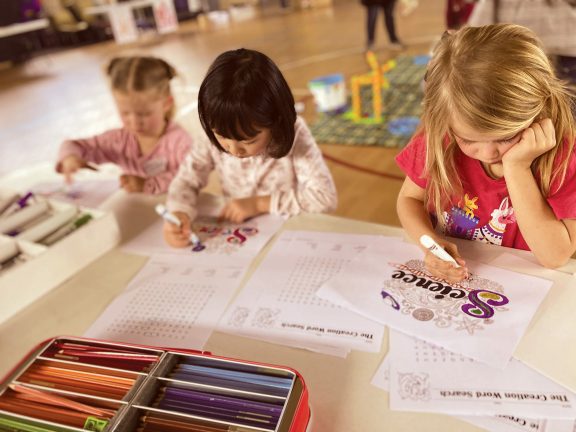
Primary
Primary at Faith Christian School is for students in Prep to Year 6. Learn more about our curriculum and paper-based lesson delivery.
-
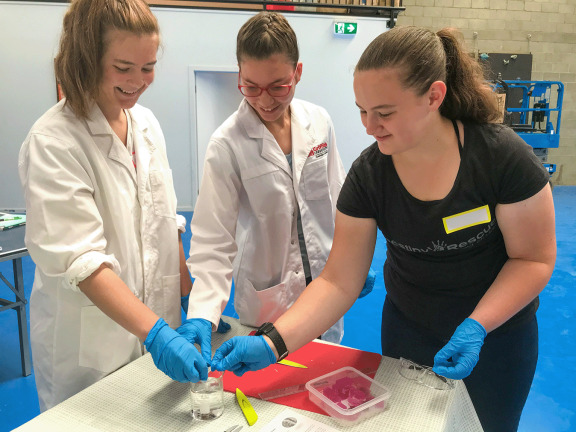
Senior Secondary
Whether students want to choose an ATAR pathway or gain a QCE, Faith offers multiple accredited courses for Years 10-12 that are taught through a Christian Worldview.
-
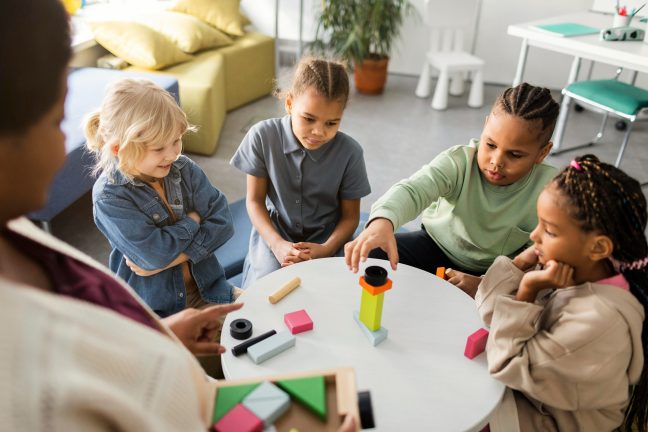
Learning Enrichment
Students with specific learning needs and/or disability, along with their parents, are supported through high levels of consultation and collaboration and individualized learning opportunities.
FAQs
What is the difference between formative and summative assessments?
Summative assessments feed into the students’ grades, whereas formative assessments do not. It is important for your child to complete the formative assessment when it is due to allow time for your teacher to best support student progress before the summative assessment. Formative assessments allow teachers to ascertain how well students have grasped the knowledge and skills that are needed in order to successfully complete their summative assessments.
What will my child’s report show at the end of each semester?
We will report on each of the eight KLAs (Key Learning Areas) that we have produced workbooks and assessments for, of which your child has completed. This includes adjusted content and assessments. Faith can only report on curriculum content that the school has implemented, monitored and assessed students on.
KLAs include:
- English
- Mathematics
- Science
- Humanities & Social Studies
- The Arts
- Technologies
- Health & Physical Education
- Languages
For each of the KLAs, we will report on what your child has done well in during the semester, what their learning goals will be moving forward, and an overall personalised comment from their teacher. We will also indicate on the report which co-curriculum activities your child engaged in during the semester.
